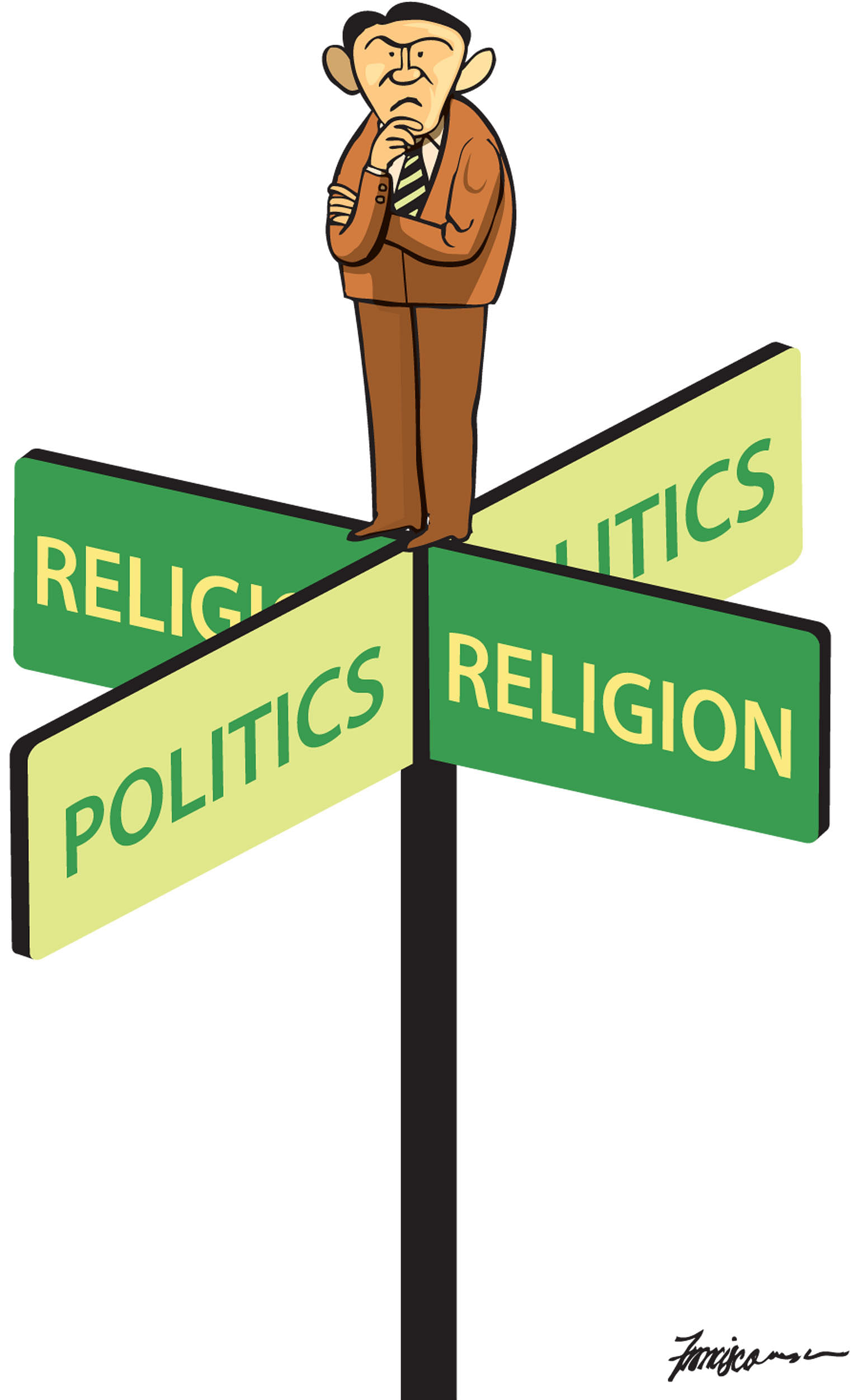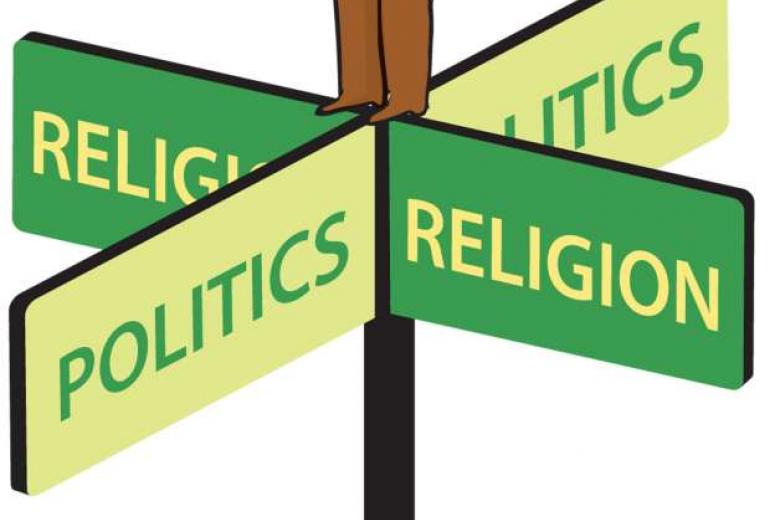Given the political earthquake that's just rocked the United States, it is timely perhaps to turn the gaze to one's own neighbourhood, where Indonesia has just come through a period of tumult after witnessing the kind of uprising that's provided fodder for the likes of Mr Donald Trump to score easy points against extremist Muslims.
More than 100,000 demonstrators in white, and waving black flags - some say the number was at least twice that - descended on Jakarta last week to demand the arrest of its popular governor, Mr Basuki Tjahaja Purnama, alleging he blasphemed the Quran. Mr Basuki's fault was to lightheartedly cite a verse to show there was nothing in the Holy Book that proscribed Muslims from choosing a non-Muslim leader.
Mr Basuki, who goes by the popular name Ahok, is a minority figure twice over in the world's biggest nation of Muslims - he is not only ethnic Chinese but the first Christian to hold the post in five decades. As a deputy to President Joko Widodo when Mr Joko himself was governor of Jakarta, he remains a presidential confidant - the two speak several times a week, usually over the telephone.
The efficient Mr Basuki is also notoriously blunt in word and deed, evicting squatters and displacing fishermen for development projects, contracts for some of which have gone to ethnic Chinese Indonesians. It appears only about a third of the displaced have been given alternate accommodation and this has stoked resentment.
If all this wasn't enough of an incendiary mix, Mr Basuki, who is hugely popular despite his background, complicated things by indicating he will run for re-election in February. That runs smack into the political ambitions of two men backed by powerful interest groups: Mr Anies Baswedan, a former minister of education, and Mr Agus Harimurti Yudhoyono, a former army officer and son of Dr Susilo Bambang Yudhoyono, who was president from 2004 to 2014.

There are suspicions, endorsed by no less than President Joko, that elements that want to see Mr Basuki dislodged from his key perch forked out the US$1 million (S$1.4 million) or so estimated expense of busing the militants into central Jakarta and keeping them there for a day.
Given his proximity to the President and Indonesia's tradition of shadow play, knocking Mr Basuki is seen as another way of chipping away at Mr Joko's power edifice before the next presidential election in 2019. After all, it took Mr Joko just two years to vault from being picked as Jakarta governor to be elected president of the republic.
With the protesters threatening to return for a fresh round on Nov 25, it is useful to take stock of where Indonesia is headed.
For most Indonesians, the multi-layered and pluralistic character of their society and culture is a prized possession. Visit the Sultan's Palace in Yogyakarta, central Java, and you see the various influences in the architecture, including the familiar Chinese dragon. Tolerance runs deep in the psyche and is enshrined in the Pancasila state code. To the world, Indonesia is a strong beacon for the peaceful face of the Islamic faith.
But like moderate Islam everywhere, including large population nations such as Pakistan and Bangladesh, the faith is under stress from the hardline elements at its fringes. Wahabi Islam particularly, spread by Saudi Arabia with its oil money, has had its impact on Indonesia in recent decades, witnessed in the sprouting of religious schools and growing intolerance for alcohol use.
Last week's protest, whose scale clearly left the President unnerved and caused him to postpone a visit to Australia, was organised by the Defenders of Islam Front (FPI), a vigilante outfit, together with a number of other hardline Islamist groups. Though not thought to be a Wahabi outfit, FPI has a history of exploiting economic and political tensions on the ground, and turning them into religious issues. It also is known to attack Shi'ite Muslims and at one time, had opposed President Megawati Sukarnoputri, saying Islam forbids women leaders.
Given its muscular approach, compared with groups such as Nahdlatul Ulama (NU), politicians have often found it convenient to occasionally borrow its skills for the strong-arm needs of their craft. Mr Basuki has been particularly severe with FPI in the past, demanding it be banned. That Indonesia's moderate Muslim groups such as the Muhammadiyah and NU have gone largely silent and hesitated to come to Mr Basuki's defence creates opportunities that have helped it gain traction.
"Three elements are at play here," Mr Fitriyan Zamzami, national affairs editor of the prominent Jakarta newspaper Republika, told me recently. "The first, undoubtedly is rising Islamic conservatism. Second, resentment against Mr Basuki's uprooting of people. But it also cannot be denied that the middle class feels that moderate groups like Muhammadiyah and NU have failed to voice their grievances. This gives the opening for fringe ideology to come to the fore."
Mr Fitriyan, who moved among the crowd on Nov 4, said while it is indeed likely that political groups stoked the unrest, the genuine resentment felt by many was palpable as well. Ignoring such sentiments lays the seeds for future unrest and retaliation.
MODERATES NEED TO STEP UP
Yet, as much as Mr Basuki needs to be more circumspect in speech, it is important for Indonesia's moderates to assert themselves. Writing in the Wall Street Journal yesterday, former finance minister Rizal Ramli argued that Mr Basuki should admit his errors and withdraw from contesting: "This would defuse a precarious situation and deny fundamentalists the opening to pursue power."
But the opposite could also happen. Mr Rizal's suggestion, if accepted, may even provide a window for the militant fringe to claim victory and let loose the elements of extremism. Perhaps what is needed really is genuine contrition from Mr Basuki and firm support from across the political spectrum for him to contest on a matter of principle. Far healthier for Mr Basuki to be judged at the hustings than by religious lunatics.
To know how extremism, if not handled early, can send things badly wrong, look no further than Pakistan, the second largest Muslim nation. Five years ago, Mumtaz Qadri, a bodyguard of the governor of Punjab state, assassinated his master because he had stood up for a poor Christian woman accused of blasphemy. Sentenced to death, Qadri was feted as a hero during the five years he spent in jail. This February he was finally executed but only after a gutsy army chief ordered the punishment carried out. Even so, lawyers in Islamabad went on a day's strike in sympathy. Such was the need they felt to show support for the killer.
Hardline Islamic outfits have never gathered more than 10 per cent of the vote in any Pakistani election, underscoring the fact that most Pakistani Muslims are moderate folk. Yet their influence cannot be discounted. Indeed, the state has been weakened as much by their activity as the proclivity of politicians, including the army-dominated establishment, to make cynical use of their support. The result has been economic stagnation and deep strains on society.
Mr Joko stands at a crossroads, therefore. To play softball with militant groups may be politically expedient but far better if he came out firmly for the principles that form the bedrock of modern Indonesia.
Two years after taking charge, he has managed to make Indonesia attractive for investments once again. His tax amnesty scheme has been a success and his plans to fix the nation's infrastructure problems are nearing take-off stage. The economically dominant ethnic Chinese community feel far more at ease today than they have in decades. To drop the ball at this stage would be to waste the opportunity of a lifetime.
The best antidote to regressive thinking is the hope provided by opportunity. If not, people will look for non-traditional solutions. Americans revolted against globalisation by electing Mr Trump. For Indonesia, if its moderates do not stand up, the answer may come in the form of groups like FPI.

